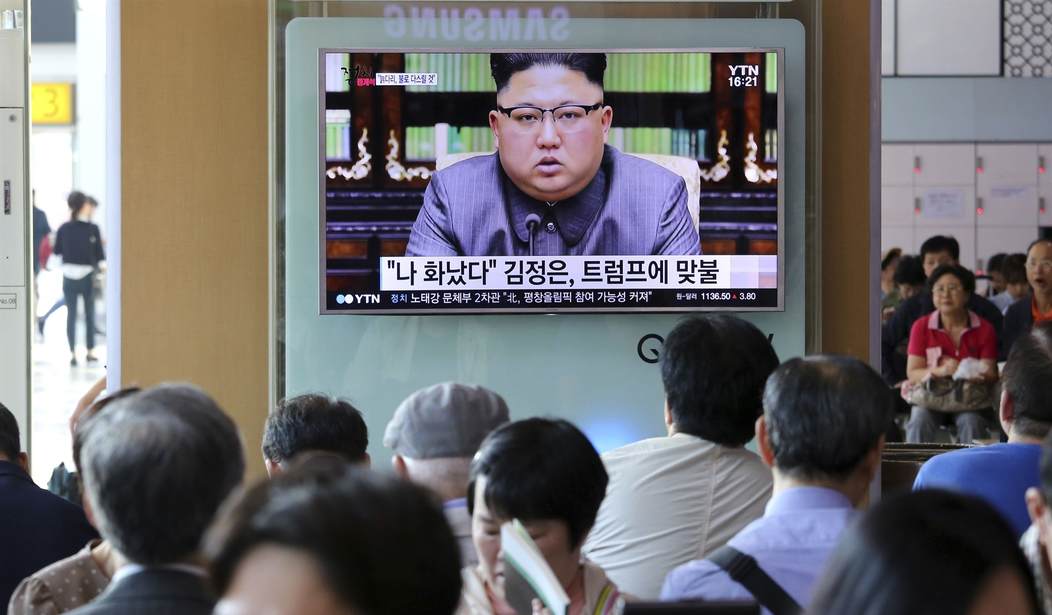This column was authored by Tirzah Duren.
North Korea has made progress towards its goal of proliferation by detonating a hydrogen bomb ten times the size of prior tests. In response, the United Nations voted to intensify existing sanctions by further limiting oil imports and textile exports. North Korea’s ambassador to the UN, Han Tae Song, has called the latest measures unlawful, and declared his country ready “to use a form of ultimate means.” Further antagonizing Kim Jong-un is one reason to eliminate sanctions, but the more important one is that they are unlikely to stop nuclear proliferation.
Two types of sanctions are commonly used by the UN: comprehensive and targeted. Comprehensive sanctions are broad and apply to the entire country, whereas targeted sanctions can be focused on a single industry, company, or even a person's assets. In theory, the benefit of targeted sanctions is that they can be directed only towards those who are actively participating in government actions, whereas comprehensive oftentimes impact innocent civilians. Targeted sanctions against North Korea, specifically in regards to nuclear weapons have already been in place since 2006, but given recent missile tests, they do not appear to be working.
The failure of targeted sanctions is more likely than their success. Changing a government’s behavior is only effective in 10 percent of cases. Constraining behavior, through limiting resources or external pressures, was a little better but still only 28 percent successful. Furthermore, when the UN uses sanctions on authoritarian regimes like the one in North Korea, the success rate drops to 2 percent. The low success rate is due to the fact that when resources are limited, authoritarian rulers have the capacity to increase oppression to make up any financial loss. Additionally, they can profit off of resulting black markets which, in turn, stabilizes their regime by concentrating resources.
Recommended
This played out in Iraq following the Gulf War, when Saddam Hussein used profits from black market trade to fund his regime. The same is likely occurring in North Korea. In February, the UN published a report alleging that Kim Jong-un was using fake businesses and aliases to get around sanctions and export banned materials to generate revenue.
Even without black markets, sanctions have still failed to limit trade. North Korea’s trade rates have shown continual growth since to 1990s, and averaged a growth rate of 8.6 percent from 2010 to 2015. The majority of this growth can be attributed to China, whose exports to North Korea grew dramatically from 2004 to 2012 despite existing sanctions. China is the largest trading partner and accounts for 83 percent of North Korea’s exports and 85 percent of imports. For sanctions to have an impact, China would need to aggressively enforce them, which has not been done in the past.
Even if sanctions against North Korea could succeed in limiting trade, they may not be the best route. On the surface, sanctions appear to be the more humane route compared to military action. But that’s not necessarily the case. Often, it is the most vulnerable who bear the brunt of a potentially deadly burden. Reports of actual deaths tolls due to economic sanctions in Iraq vary widely. Some reports estimate deaths of Iraqi children under the age of five to be 227,000 from 1991 to 1998. Higher calculations are that 500,000 Iraqi children under the age of five had died in part due to the economic sanctions placed on the country by the UN. There is even a report that found no measurable increase in child deaths due to economic sanctions. Despite the variation of these estimates, it is highly unlikely that the poor would not be adversely impacted from a reductions of resources.
When sanctions have proven ineffective and war is undesirable, it is time to look at alternatives. Economist Tom Friedman developed the Golden Arches Theory in the aftermath of the Cold War, which suggested that no two countries that have McDonald's restaurants within their bounds will go to war against one another. It’s not 100 percent accurate, but the underlying idea holds true: more developed and integrated economies are less likely to go to war. This is in part due to intertwined economic interests, but also because citizens in more developed nations “don't like to fight wars; they like to wait in line for burgers.”
Evidence supports these claims. There is an established correlation between income and conflict risk, with countries in the lowest percentiles having a higher risk. Additionally, countries that are trade partners are less likely to go to war with each other. Therefore, it might be wise for the United States to keep its friends close but North Korea closer. Pursuing trade with North Korea in no way condones the actions of their government. Rather it is the option most likely to impede a nuclear power struggle between the two countries.
Tirzah Duren is a political economy pundit with Young Voices, who focuses on food security, trade, and international development. You can follow her on Twitter @TzDuren.

























Join the conversation as a VIP Member